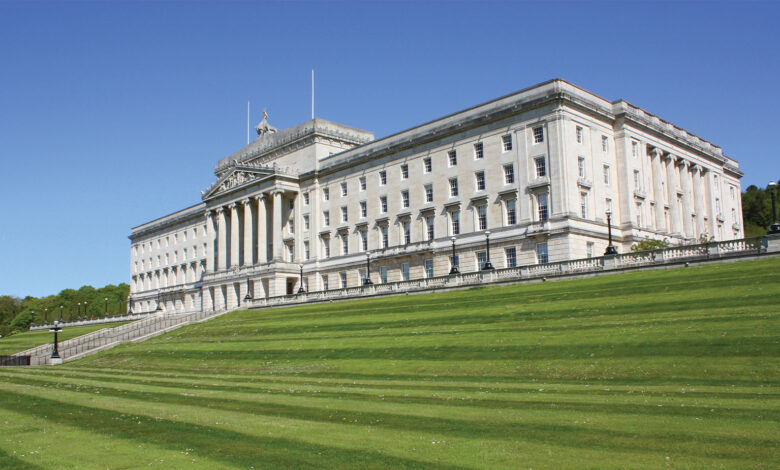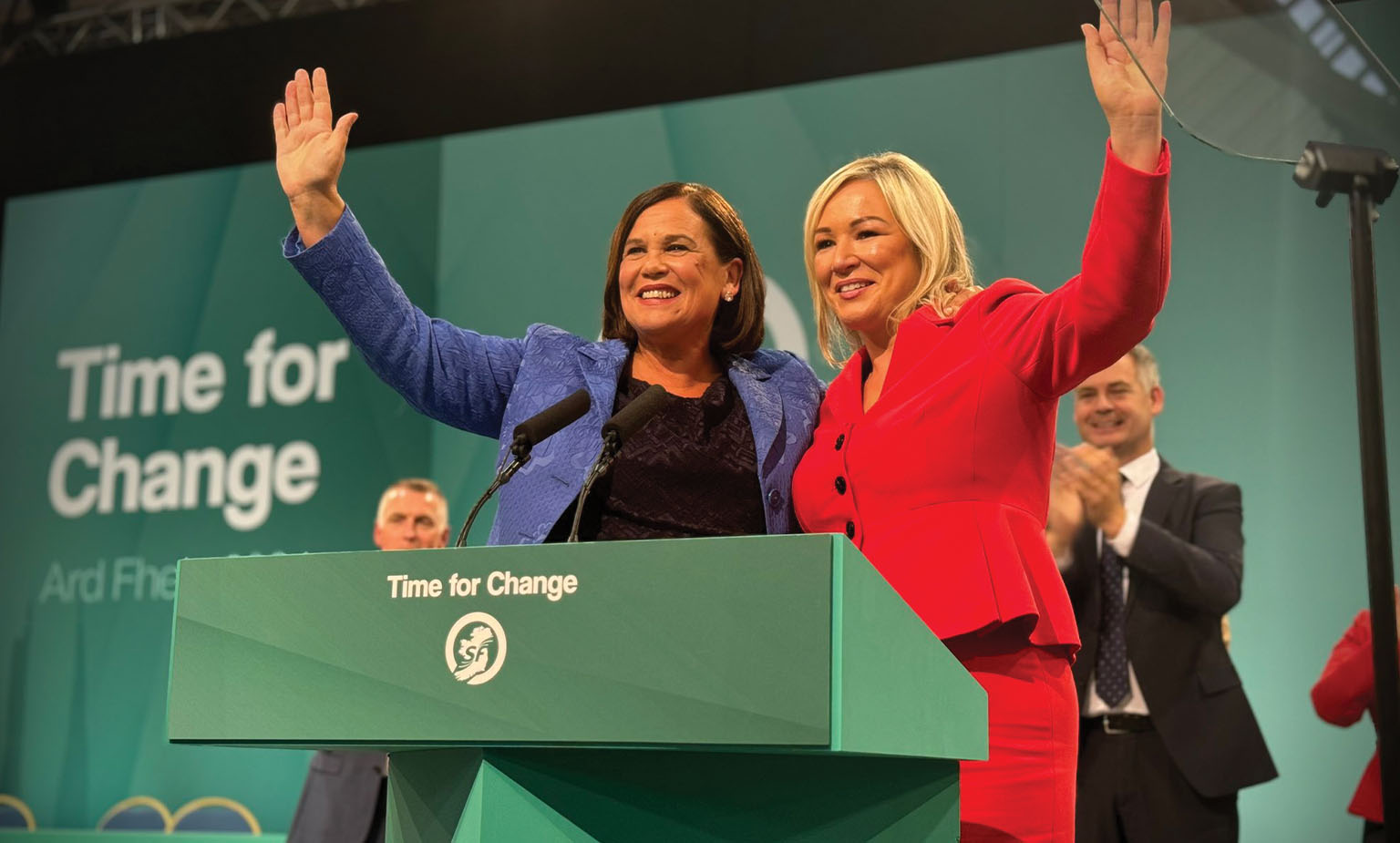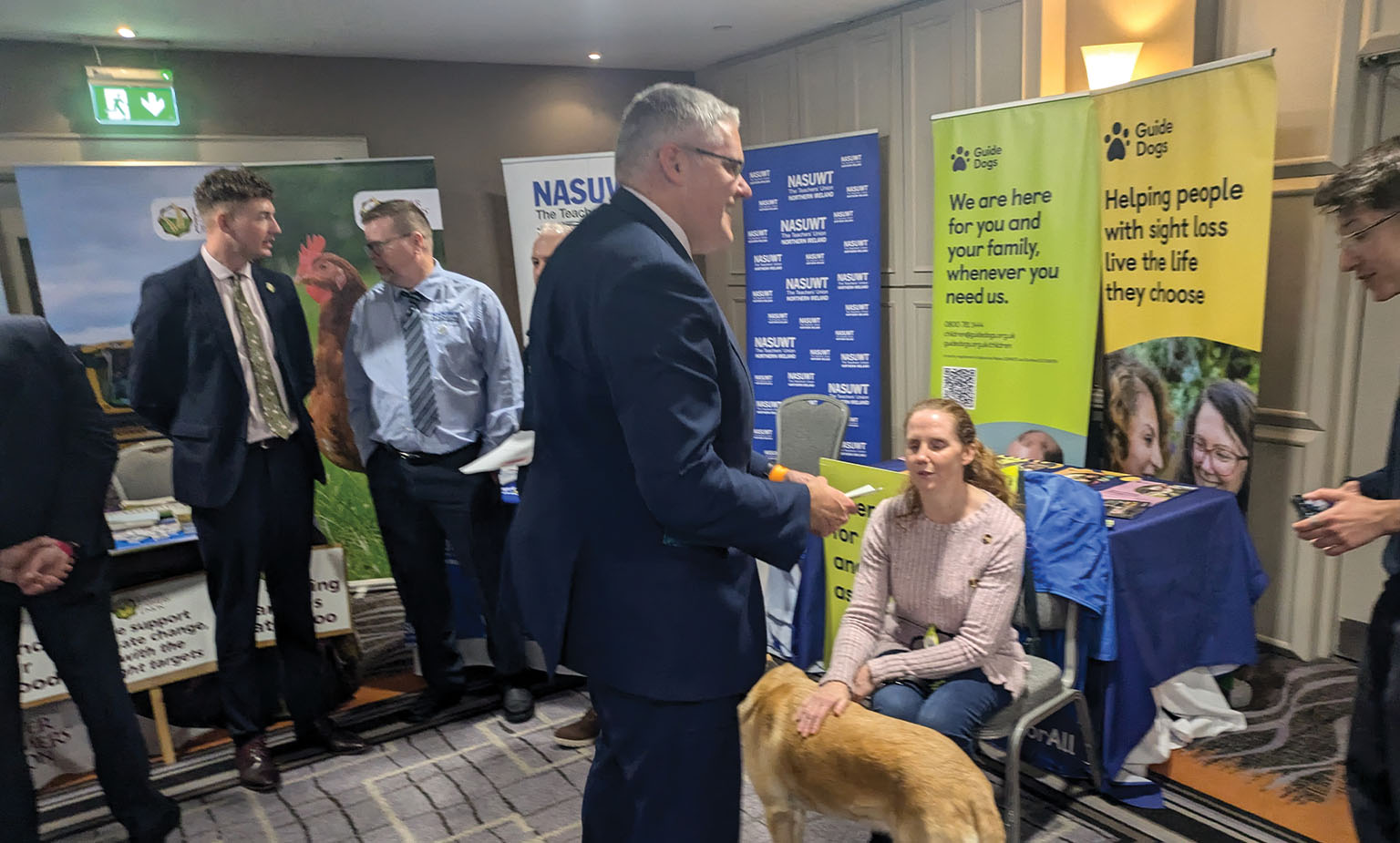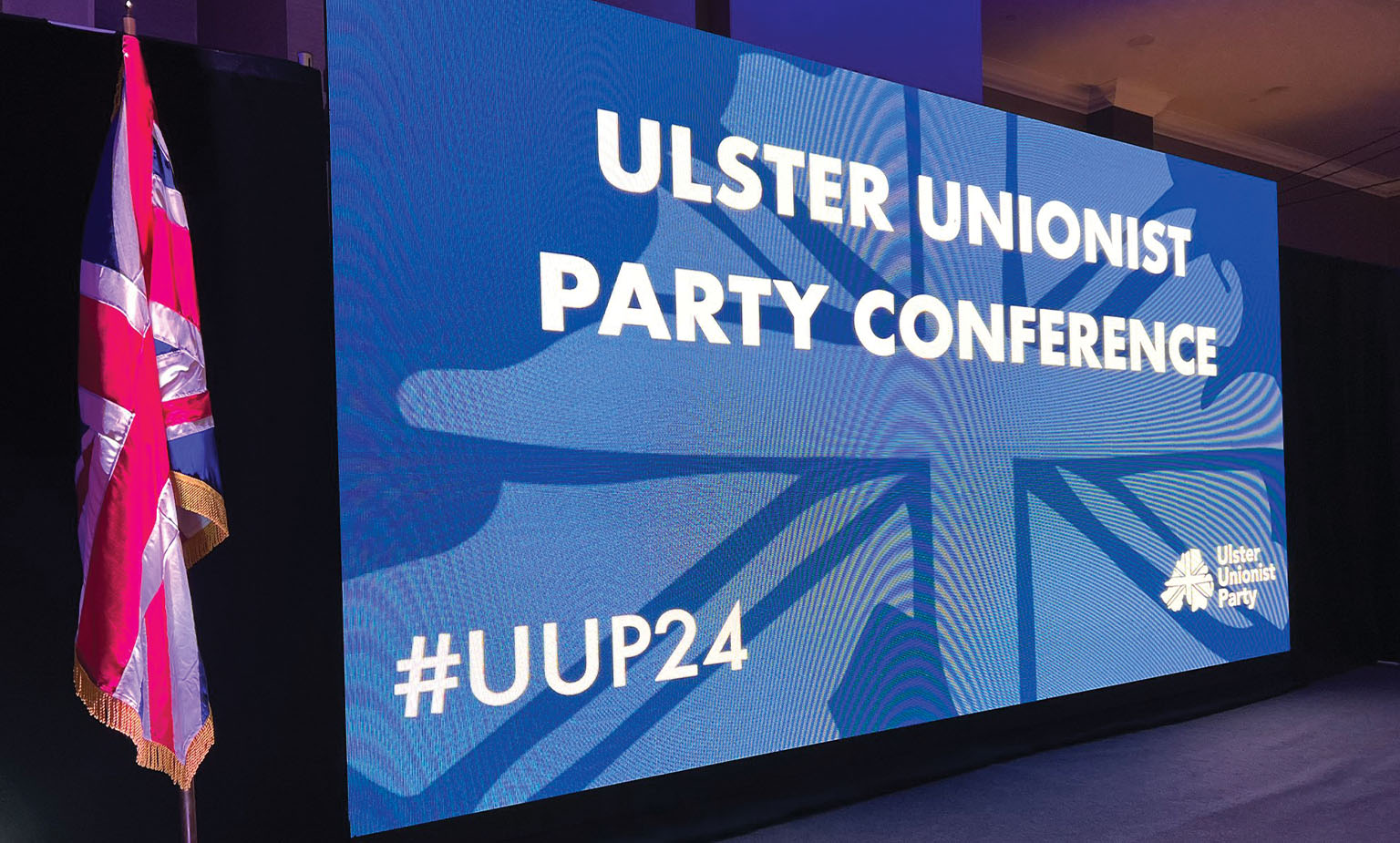Northern Ireland’s political parties: State of play

With three years left in the Assembly mandate, all but one of the five main parties held their annual conferences in September and October 2024. It has been a year which has seen three parties change leader alongside a dramatic Westminster election. Having attended the party conferences, agendaNi explores the state of Northern Ireland’s parties.

Sinn Féin: A tale of two leaders
Back in 2014, Gerry Adams said that the Sinn Féin strategy was for “equality” to be the “trojan horse of the entire republican strategy”, with the objective of winning power north and south and gaining respectability among the Irish establishment.
While this project has succeeded thus far in the North, where Michelle O’Neill leads the Executive and stands as the most popular political leader on the island of Ireland, according to polling, the task of turning the tide and winning the general election in the South, scheduled for 29 November 2024, remains a tall order.
Following extremely disappointing results in the Republic’s 2024 local elections, as well as somewhat less disappointing results in the European elections, the question of Mary Lou McDonald’s leadership may well be in question if she fails to propel the party into government in the Republic, something which was a key goal for past republican leaders when they decided to make her Adams’ successor.
Internally, the momentum of the Sinn Féin pendulum, as illustrated by attendance at the party’s ard fheis, which took place in Athlone, County Westmeath – in the same venue and, ironically, with the exact same theme (‘time for change’) as its 2023 ard fheis – on 28 September 2024, has swung back to Belfast and away from Dublin. Several delegates, including an MLA, a councillor, and a party activist commented privately on greatly reduced numbers this year.
This belies the fact that this should be the most significant opportunity in the party’s history, at least since 1981; being the final ard fheis ahead of a general election campaign in the Republic in which the party seeks to offer a viable alternative to the Fine Gael/Fianna Fáil duopoly.
Sinn Féin re-elects its Ard Comhairle at every ard fheis. When McDonald was formally re-elected as party president, there was a comparably muted reaction from the crowd compared to the that of party vice-president Michelle O’Neill MLA, who has led the party to unrivalled success in the North, leading in local government, Stormont, and among Northern Ireland’s MPs.
As this was happening, Sinn Féin leadership was in the process of removing two press officers who had provided professional references to former Sinn Féin press officer and convicted child sex offender Michael McMonagle, something which McDonald and O’Neill have said took place without the party’s approval.
One veteran MLA agreed that the position of the party in the south is below what was expected one-year prior, but was adamant that there is still a chance that the party can turn the tide.
“We were in a much worse position before the last [general] election and did better than we ever thought we could at the time,” the MLA told agendaNi, adding their full belief that “she [Mary Lou McDonald] can turn this around”.
However, if Sinn Féin falls short in the election, it is entirely plausible that there will be a new party leader, marking a major inflection point in a decades-long project choreographed by past republican leaders of ascending to government in the Republic, leading the Executive in the North, and using this combined power base to unite Ireland.

The DUP’s new ‘big fella’
For the DUP, 2024 has been arguably its most challenging year since the passage of the Good Friday Agreement. Just 54 days after the DUP was led back into the Executive under Jeffrey Donaldson’s leadership, the party was rocked by the emergence that he was to face court over a series of charges of alleged historical abuse.
Propelled into party leadership in a sudden manner, party leader Gavin Robinson MP led the party into the July 2024 UK general election, which produced the party’s worst Westminster election results since 1997. Robinson was, however, successful in his own re-election bid, seeing off Alliance Party leader Naomi Long MLA in east Belfast.
The party’s conference, which took place in south Belfast on 21 September 2024 – in the same venue as 2023 – demonstrated three things.
Firstly, there is clear good will from all sections of the party towards Robinson, who is admired and respected almost without exception for stepping up to lead the party following Donaldson’s resignation.
Secondly, the party sees the promotion of new faces as key to the party’s long-term sustainability, with younger MLAs such as Jonathan Buckley, Cheryl Brownlee, Joanne Bunting, and Deborah Erskine being given prominent speaking slots at the conference. In a complete reversal from the 2023 conference – the party’s veteran Westminster MPs were abesnt from the main stage.
Thirdly, the party has no desire to collapse the Executive again in the near future, with a party insider telling agendaNi that they believe the worst of the threat posed by Jim Allister’s TUV has been seen off, and the party’s role in leading its Executive departments being promoted as a key aspect in how it will connect with local communities and ensure electoral success.
Taking the stage to an enthusiastic applause, Robinson’s speech struck a consciously banal tone, with the new leader keen to project messages of strength and humility, reaffirming his support for the union with Britain, and attacking the new Labour government in London.
“If the first two months of their tenure has shown us anything, it is that such strength will not always be used for good,” he said, pointing to the removal of the winer fuel allowance, and perceived inequality over Labour’s support for victims during the conflict.
Robinson also reflected on where the party stands, acknowledging that the general election results were “disappointing” and that the DUP needs to rebuild. Robinson analogised: “If the message of Easter reminds us of anything, it is that the darkness of Good Friday has passed; we do not live in the shadows of yesterday but walk in the light of today and for the hope of tomorrow.”
Following his speech, in what was expected to be a general message of appreciation for Robinson, party chairman Maurice Morrow, after ambiguously referencing the “extenuating circumstances” which plagued the DUP’s poor general election campaign, led the tributes, affirming his and the party’s support for the leadership in “the most difficult of circumstances”.
Referring to the immediate aftermath of Donaldson’s resignation, Morrow said: “I do remember that fateful Saturday morning when we met as party officers… Our deputy leader then, Gavin, was asked a straight question: will you take over the mantle? I was the one that asked him. He said: ‘If this party asks me to do it, I will do it.’”
Reflecting that the DUP faithful “used to look up to a certain big fella”, Morrow then said that the party was lucky to have “another big fella” and stated that he would continue to have support from the whole party.
The spectre of the previous leader clearly continues to haunt the DUP, and the party faces an enormous task in gaining back support it has lost in recent years. However, with an apparent ‘Robinson rally’, the youngest party leader in Northern Ireland has the space to be decisive in breaking with the old leadership style in the DUP, and will aim to promote new voices.

Back to the future for the Ulster Unionist Party
After the end of Doug Beattie experiment of liberal unionism, the UUP conference – the first conference held since 2021 – oversaw the ratification of Mike Nesbitt MLA as the party leader, seven years after he resigned from the role.
Nesbitt is the fourth leader to assume the job since his ‘vote Mike, get Colum’ election campaign which saw the party reduced from 16 to 10 seats in the Assembly.
While Nesbitt was ratified unanimously as the new leader, his first party conference was little short of disastrous. Firstly, he contracted Covid-19 in the days prior to the event, which meant that he was not able to make his leader’s speech in person. Secondly, only around 160 people were in attendance at the same venue that hosted the DUP conference the week prior.
In an awkward speech, characterised by a lack of applause due to technical challenges in his remote address, Nesbitt said that he was “not going to dwell on the whys and wherefores of what happened”, regarding Beattie’s resignation, adding: “What I do say publicly is this, thank you, Doug.”
Nesbitt also made clear that he plans to continue Beattie’s liberalism, stating: “We should embrace a diverse, multicultural society, in the same way we must play our part in developing cross-party, cross-departmental politics.”
Nesbitt’s return can be viewed positively from the UUP’s perspective. His personal popularity is boosted by an executive protfolio.
However, the fact that his first leadership spell is widely perceived as a failure, and the fact that his return to the leadership was largely perceived as due to the fact that most of the party’s senior figures have already unsucessfully served as leader, hints at continued stagnation for Northern Ireland’s oldest and founding party.
SDLP: Hanna aiming to ‘build something new’
The SDLP conference, also held at the same south Belfast venue as the DUP and UUP conferences, saw a leadership change, as Colum Eastwood MP bowed out from the top of the party he has led since 2015. On 5 October 2024, Claire Hanna assumed the role that many believe she has been working towards for a many years.
The SDLP conference, after what had been a dull day marked by poor attendance, exploded into life upon Hanna’s entry to the stage, and was markedly more energetic than the two conferences which took place in the same venue in the two weeks prior.
In line with the conference theme, ‘build something new’, Hanna made it clear during her inaugural leader’s speech that the SDLP must redefine itself, stating that it “has been a bit stuck”, and adding: “Our job isn’t to teach people how great John Hume and Seamus Mallon were, our job it to make people feel the way the way they made people feel.”
She was also reflective, conceding that while the SDLP “has no divine right to exist… the SDLP’s politics has value, it has a purpose, it has a future.” She also reiterated that social democracy is the party’s ideology and insisted that support for Irish unity will not wain under her leadership.
In spite of the conscious move away from the past, the party made a surprising move at this conference, anointing party stalwart Bríd Rodgers as the party’s president, making her the first person since John Hume to be granted the title ‘president of the SDLP’.
In spite of speculation prior to the conference, there was no sign of the former Taoiseach Leo Varadkar TD, although former party leaders Mark Durkan and Margaret Ritchie – in spite of her apparently expulsion from the party upon taking a seat in the House of lords – were present, along with former north Belfast MLA Alban Maginness, who energised the room momentarily when he spoke on the need for a campaign to save Lough Neagh.
In a subsequent interview with agendaNi, Hanna has said that she is realistic about the party’s prospects. However, there is precedent for her to be successful given her strong electoral record in south Belfast, allied with the fact that the electorate of Northern Ireland have demonstrated an affinity with female leaders.
The SDLP’s challenge is that it has already declined so comprehensively that becoming a party of significance once again will be an extremely tall order. The main hope for the party is that Hanna’s success in south Belfast – an area where the party’s electoral performances have been considerably stronger than other traditional strongholds such as Derry and south Down – can be replicated as Hanna becomes even more of a household figure for the Northern Ireland electorate.





